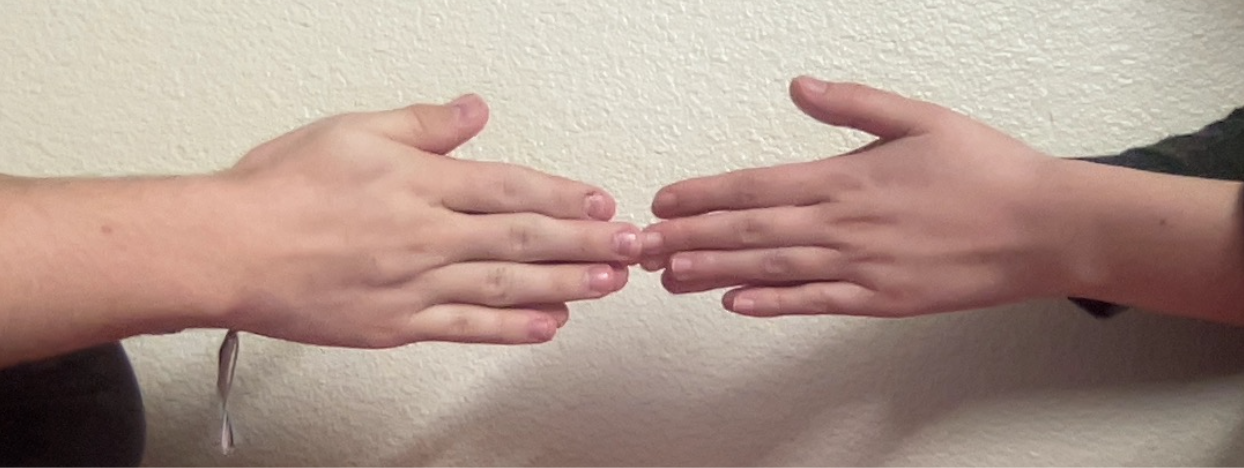Text:
Two people face each other. Their hands are connected palms together with fingers together and thumbs upward. They extend their arms to connect their middle fingertips together lightly. (see image below)

One person will try to take one of their hands away from the other and slap their partner’s hand. The partner with try to pull their hands away before they can be hit.
(Though the informant assigned no such roles, I will refer to the partner aiming to slap as the offensive partner and the partner pulling back as the defending partner for ease of communication.)
If the defensive partner succeeds in avoiding the hit, both players will reset their hands to the starting position and the offensive partner will try again to hit the hand. This repeats until the offensive partner wins. If the offensive partner succeeds in hitting their partner’s hand they win, and the defensive partner loses. The original hand position is taken up again and this time the partner who lost will take on the offensive role (trying to slap their partner’s hand before they pull away.) and the partner who won will take up the defensive role (trying to pull away). Play proceeds like this for as long as is desired.
Context:
The informant learned this game at a young age from her father who is from Murcia, Spain.
Analysis:
This game reminds me of many other hand games primarily children will play. specifically, it reminded me of a very similar game I learned as a child. The game I know features the same goal of trying to slap the partner’s hands before they pull away, and also the same system for switching roles. The difference is the starting position. As I learned the game, the offensive partner would place their hands out palms up and the defender would lightly rest their hands over the partner’s hands palms down.
These hand games indicate resourcefulness among people and children especially. This game is a way to have fun without the need for any materials. it is also very quick to learn.
